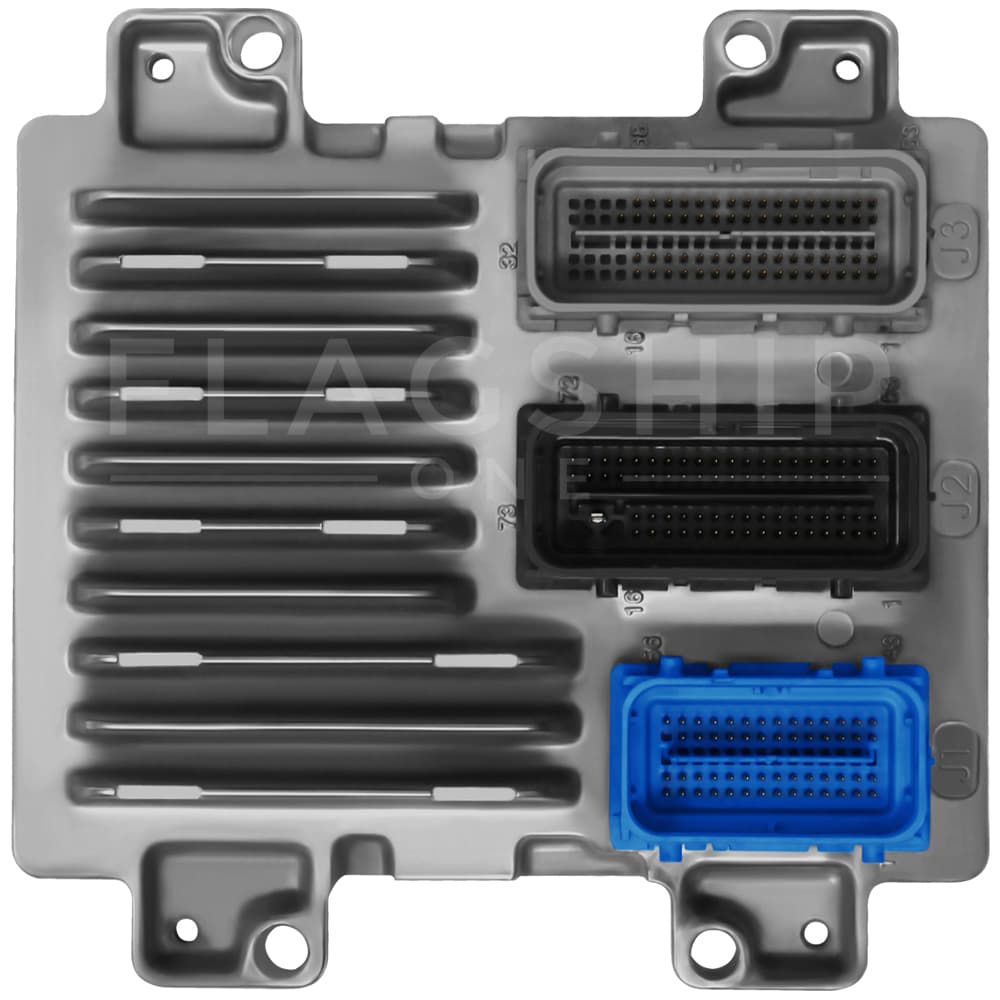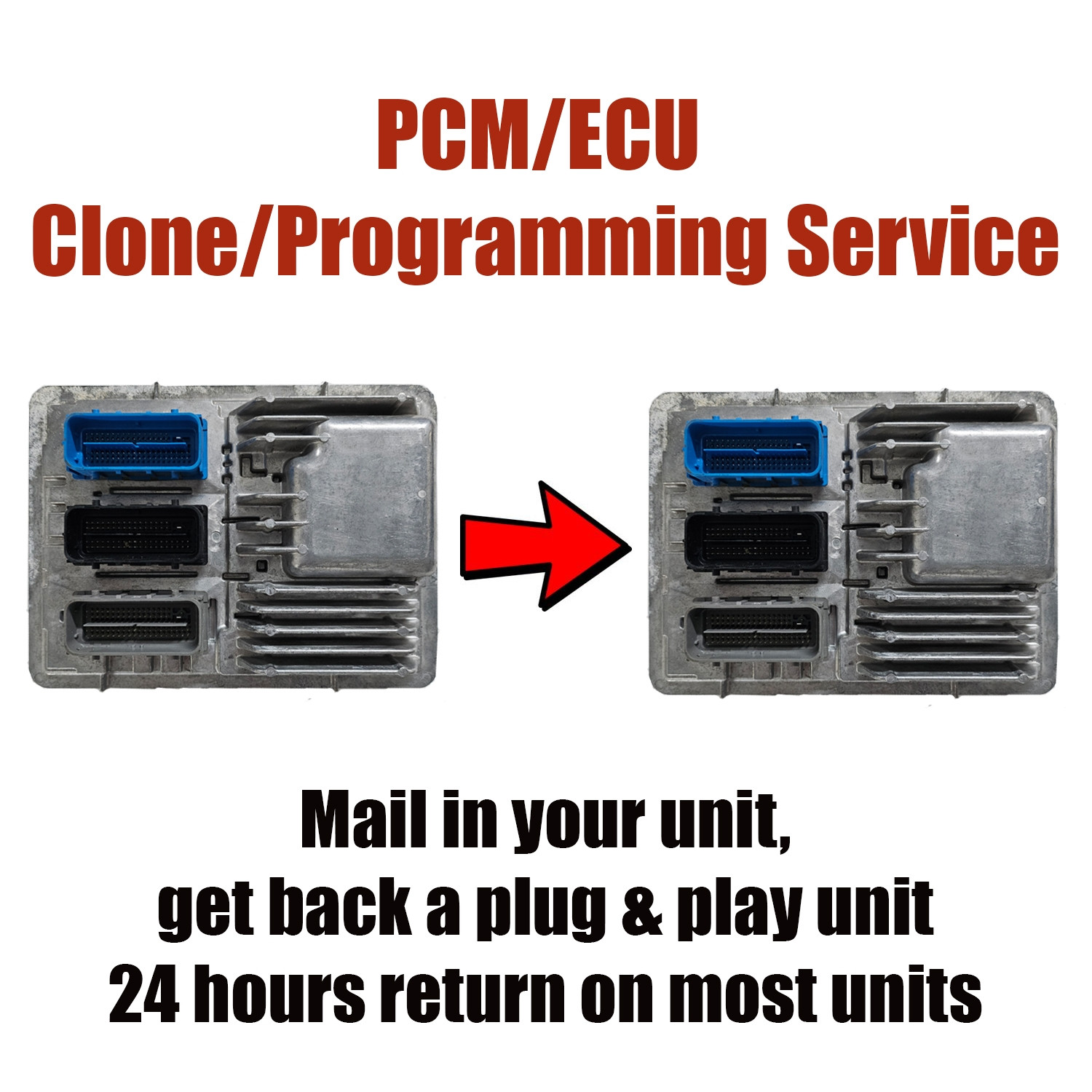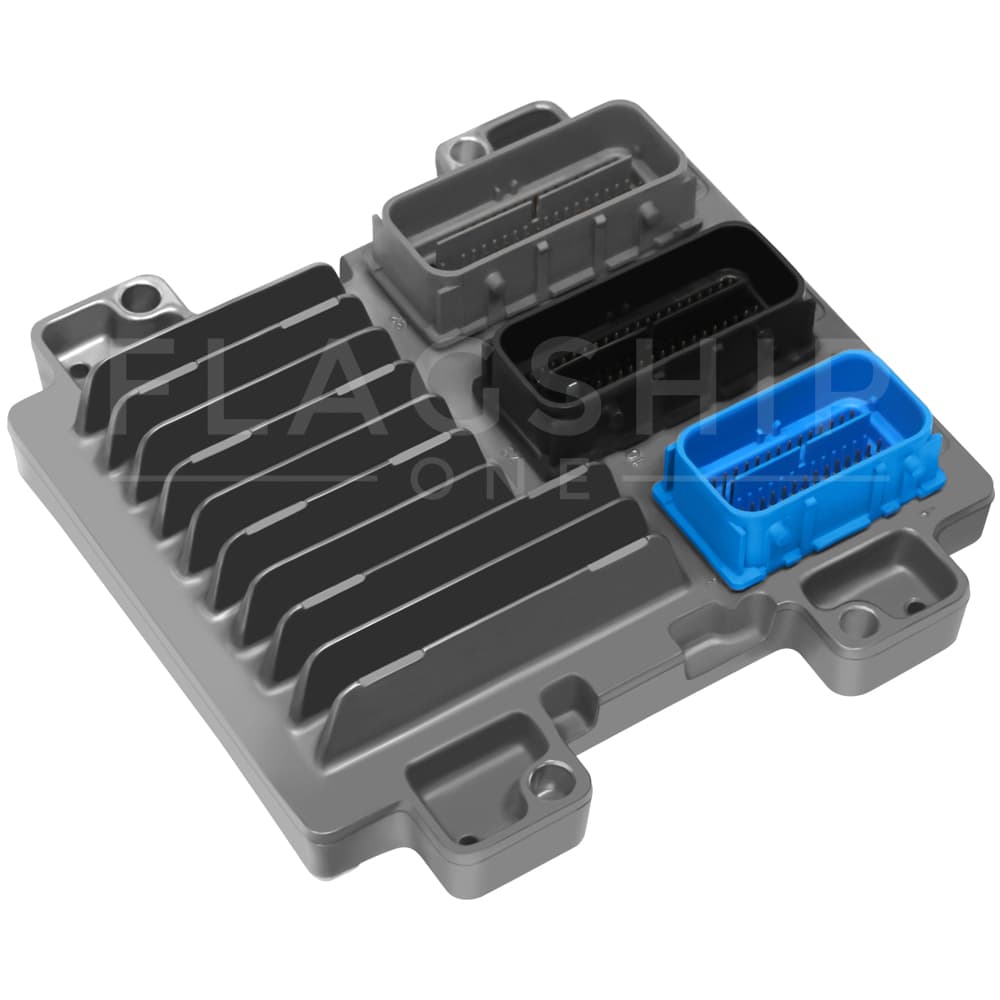If you own a Chevy Cruze, you might have faced frustrating engine troubles that seem to come out of nowhere. One common culprit behind these issues is the Engine Control Module (ECM).
When your Cruze’s ECM acts up, it can cause your car to stall, misfire, or even refuse to start — leaving you stranded and stressed. But why does this happen, and how can you spot the signs before they turn into costly repairs?
You’ll discover the most frequent Chevy Cruze ECM problems, what symptoms to watch for, and simple steps you can take to protect your vehicle. Keep reading to make sure your Cruze stays on the road and runs smoothly.
Chevy Cruze Ecm Basics
The Engine Control Module (ECM) is a key part of the Chevy Cruze. It acts as the car’s brain. The ECM controls many engine functions to keep the vehicle running smoothly. Understanding the basics of the ECM helps identify problems early. This section explains what the ECM does and common signs of trouble.
Knowing these basics can save time and money on repairs. The ECM’s role and symptoms of failure are important for any Cruze owner.
Role Of The Ecm
The ECM manages the engine’s performance. It controls fuel injection, ignition timing, and emissions systems. Sensors send data to the ECM. The ECM uses this data to adjust engine functions. It ensures the engine runs efficiently and meets emission standards. The ECM also monitors safety systems and alerts the driver to issues. A healthy ECM is vital for vehicle reliability and fuel economy.
Common Ecm Symptoms
ECM problems cause various issues in the Chevy Cruze. One common symptom is the check engine light turning on. The engine may stall or have trouble starting. Loss of power or poor acceleration can also occur. Transmission shifting might become rough or erratic. Sometimes, the car fails to start at all. Strange engine noises or poor fuel efficiency are signs too. Recognizing these symptoms early helps prevent bigger problems.

Credit: www.fs1inc.com
Frequent Ecm Issues
The Engine Control Module (ECM) in a Chevy Cruze plays a vital role in managing engine functions. Frequent ECM issues can cause many problems. These issues impact vehicle performance and reliability.
Understanding common ECM problems helps in early detection. Timely action can prevent costly repairs and keep the car running smoothly.
No-start Problems
One common ECM issue is the no-start condition. The engine may crank but fail to start. This happens because the ECM does not send proper signals to the fuel and ignition systems. Faulty ECM can stop the car from starting altogether.
Engine Stalling And Misfires
Stalling and engine misfires are signs of ECM problems. The ECM controls fuel injection and spark timing. If it malfunctions, the engine can stall during driving or idle. Misfires cause rough running and reduce fuel efficiency.
Rough Idling
Rough idling means the engine shakes or runs unevenly at low speed. ECM issues can cause this by sending incorrect data to engine components. This leads to poor combustion and unstable idle speed. Drivers may feel vibrations or hear unusual noises.
Warning Lights And Error Codes
The Check Engine Light often comes on due to ECM faults. The ECM monitors many sensors and systems. When it detects a problem, it stores error codes. These codes help diagnose the exact ECM issue. Ignoring warning lights can worsen the damage.
Faulty Wiring And Connections
ECM problems can also arise from bad wiring or loose connections. Corroded or damaged wires affect signal transmission. This causes intermittent or complete ECM failure. Regular inspection of wiring harnesses can prevent these issues.
Diagnostic Steps
Diagnosing issues with the Chevy Cruze ECM requires careful steps. The Engine Control Module controls many vehicle functions. Identifying problems early helps avoid costly repairs. Follow these diagnostic steps to find ECM faults accurately.
Checking Ecm Programming
Start by verifying the ECM programming. Use specialized software to read the current ECM settings. Ensure the software version matches the vehicle’s requirements. Incorrect or outdated programming can cause performance problems. Reprogram the ECM if needed to restore factory settings.
Inspecting Wiring And Grounds
Next, inspect all wiring and ground connections linked to the ECM. Look for damaged wires, loose connections, or corrosion. Bad wiring can cause communication errors or power loss. Clean and secure all grounds to ensure proper electrical flow. Replace any faulty wires found during inspection.
Using A Scanner For Relearn Procedures
Use an OBD-II scanner to perform relearn procedures. This resets the ECM to recognize sensors and components properly. Follow the scanner’s instructions carefully during the relearn process. This step often resolves sensor-related errors and improves engine behavior. Confirm that all trouble codes clear after relearning.

Credit: www.solopcms.com
Quick Fixes For Ecm Problems
ECM problems in a Chevy Cruze can disrupt your vehicle’s performance. Quick fixes often solve common ECM issues without high costs. These simple steps help restore proper engine control and prevent breakdowns. Below are practical solutions for typical ECM troubles.
Resetting The Ecu
Resetting the ECU clears stored error codes and resets the system. To reset, disconnect the car battery for about 15 minutes. Reconnect the battery and start the engine. This step can fix minor glitches causing ECM problems. It refreshes the system and may stop warning lights.
Reprogramming The Ecm
Sometimes the ECM software needs updating or reprogramming. This process adjusts the module to work better with your car’s systems. A professional mechanic or dealer uses special tools to reprogram the ECM. Reprogramming fixes bugs and improves engine performance. It ensures the ECM runs with the latest settings.
Replacing Damaged Fuses
Faulty fuses can cause ECM failure or erratic behavior. Locate the fuse box and check the ECM-related fuses. Replace any blown fuses with the correct amperage. This simple fix restores power to the ECM. It prevents sudden engine shutdowns and electrical faults.
Addressing Wiring Issues
Damaged or loose wiring often leads to ECM problems. Inspect wiring harnesses connected to the ECM for breaks or corrosion. Repair or replace damaged wires and secure loose connections. Proper wiring ensures reliable communication between the ECM and sensors. This step can eliminate many electrical faults causing poor engine function.
Preventive Tips
Preventing ECM problems in your Chevy Cruze saves time and money. Small steps keep the engine control module working well. Consistent care helps avoid breakdowns and costly repairs. Here are some practical tips to protect your vehicle’s ECM.
Regular Maintenance
Check your Cruze regularly. Change engine oil and filters on schedule. Clean or replace the air filter often. Keep battery terminals clean and secure. Inspect wiring and connectors for damage or corrosion. Use quality parts and fluids to protect the system. A well-maintained car puts less stress on the ECM.
Avoiding Common Pitfalls
Avoid harsh driving habits like sudden acceleration or heavy braking. Do not ignore warning lights on the dashboard. Avoid flooding the engine with water during cleaning. Keep the electrical system dry and free from moisture. Prevent loose or damaged wires by careful handling. Use the right fuel type to reduce engine strain. These actions reduce the chance of ECM failure.
When To Seek Professional Help
Seek expert help if the engine stalls or won’t start. Take your Cruze to a mechanic if warning lights stay on. Get a scan for error codes when performance drops. Visit a professional if you notice strange noises or smells. Early diagnosis prevents bigger ECM problems. Trust trained technicians for repairs and reprogramming.

Credit: www.fs1inc.com
Frequently Asked Questions
What Is The Most Common Problem With A Chevy Cruze?
The most common problem with a Chevy Cruze is engine control module (ECM) failure causing stalling, no-start, and poor performance.
How To Reset Ecu On Chevy Cruze?
To reset the ECU on a Chevy Cruze, disconnect the negative battery cable for 15 minutes. Reconnect it, then start the engine to reset the system. This clears temporary faults and resets the engine control module.
What Is Ecm On Chevy Cruze?
The ECM on a Chevy Cruze is the Engine Control Module. It manages engine functions and optimizes performance.
What’s The Worst Year For A Chevy Cruze?
The worst Chevy Cruze years are 2011-2014. These models often face engine, transmission, and electrical issues. Early Cruzes have frequent costly repairs and lower reliability. Buyers should research and inspect these years carefully before purchasing.
What Are Common Ecm Problems In Chevy Cruze?
Common ECM issues include engine stalling, poor acceleration, and difficulty starting the car.
Conclusion
Chevy Cruze ECM problems can cause serious engine issues. Common signs include stalling, poor acceleration, and starting troubles. Regular checks help catch problems early and save money. Fixing or replacing a faulty ECM improves car performance and safety. Always choose trusted mechanics for repairs.
Staying informed helps keep your Cruze running smoothly.
















